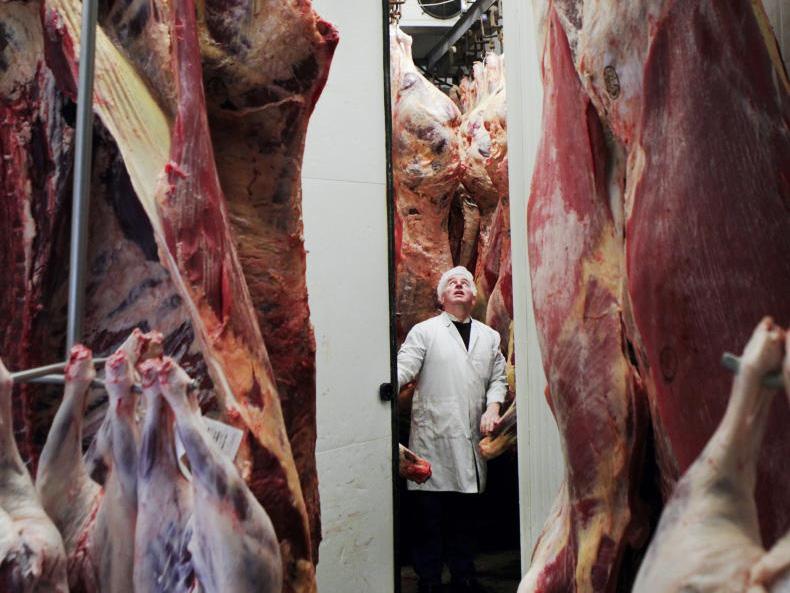For several weeks the food industry has been warning of labour and transport difficulties but as always, it gets little real attention if people don’t have a firsthand experience of the consequences.
There have been occasional pictures posted on social media of empty shelves, but before major shortages arise they are usually replenished.
In meat factories, labour shortages can be disguised by keeping people in the key functions and leaving out the more marginal jobs such as harvesting lower-value offal. These tend to be minimal-value products with a high labour element that add marginal value to the carcase and when markets are strong this can be forsaken with little notice.
Dire welfare warning
The urgency ramps up a level when a major factory that has been its restricting its intake of livestock writes to its farmer suppliers to warn of the need for swift action to avert a farm welfare disaster.
It is not only an animal welfare issue it raises in a letter to producers, but it also warn of empty shelves
This suggests that, unless a solution is found quickly to the labour shortage, there will be dire consequences because the production cycle is so structured (in the pig and poultry sectors in particular) that there is very little scope to delay entry to the factory when the time comes.
Karro – which has the UK and Ireland’s largest pig-processing plant with the Cookstown factory in Co Tyrone – has issued this warning this week.
It is not only an animal welfare issue it raises in a letter to producers, but it also warn of empty shelves and a food inflation spiral. This is a very frank and blunt assessment from a large corporation where the language tends to be bland and uninformative.
What is the problem?
Although Karro specifically excludes COVID-19 as a cause of the labour shortage, it will have contributed in at least an indirect manner.
It was COVID-19 that caused the shutdown that resulted in a reopening of the economy and a multitude of alternative employment options.
People are continuing to return home but not being replaced by new arrivals
Similarly, Brexit has meant that they cycle of supply from Eastern Europe has dried to a trickle. It was normal for people to come to the UK for a few years and then return home with their savings. People are continuing to return home but not being replaced by new arrivals.
Of course part of the Brexit argument was that cheap labour from Eastern Europe was devaluing the work done and depressing wages. With their absence the argument goes, wages will increase and the food industry will attract employees if the price is right.
Money or working environment
The question is where is that price point? Speaking to a meat factory owner recently, he was bemoaning the fact that they were paying a rate of around £13 (€15.25) per hour and still couldn’t attract staff from lower paid retail and catering jobs.
Money is important for employees in any job but it isn't the sole criteria for people choosing where to work.
While we may be close to a crisis now, the reality is that securing manual labour has been an issue for employers in the UK and Ireland for a long time. The other reality is that working in a meat factory is low down everyone’s career ambitions.
Having worked in a meat factory for 11 years, I can confirm that it is hard work in what many consider an unpleasant environment.
However, there is a view that if you survive the first week, you are likely to spend the rest of your career there. I may not have done that, but I have never worked for a longer period anywhere else.
The food industry has to undertake a complete makeover
Food industry employers have also come up short in selling the credentials of the industry to prospective employees. Karro, in a letter to farmers, has outlined the steps it has taken to try and fill the 700 vacancies the company has at present.
However, this was a problem that has developed over 20 years and there will not be an overnight solution. The food industry has to undertake a complete makeover that properly presents the potential of careers in the sector and be patient for results. Sometimes it takes a real crisis for the correct imaginative thinking to happen which in turn provides the solution.









SHARING OPTIONS